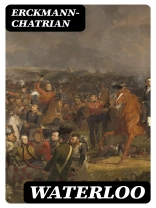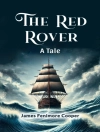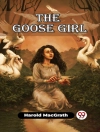In ‘Waterloo, ‘ Erckmann-Chatrian intricately weaves a compelling tapestry of historical fiction, immersing readers in the harrowing and chaotic events of the 1815 Battle of Waterloo. The authors employ a vivid and immersive literary style that seamlessly blends realism with a gripping narrative, exploring the human experience amid the throes of war. Through richly drawn characters and a dynamic portrayal of the battlefield, the novel not only chronicles the strategic maneuvers and brutal clashes of this pivotal encounter but also delves into the emotional and psychological impacts on both soldiers and civilians caught in the turmoil. Erckmann-Chatrian, a collaborative duo comprising Alexandre Chatrian and Emile Erckmann, were deeply influenced by their own experiences in the Franco-Prussian War, which contributed to their nuanced understanding of conflict and its consequences. Their dedication to portraying historical accuracy enhanced with dramatic flair indicates a desire to memorialize the profound struggles faced by individuals during tumultuous times. The authors sought to illuminate the complexities of human character against the backdrop of war, a theme that resonates throughout their oeuvre. ‘Waterloo’ is highly recommended for readers who appreciate historical narratives that delve into the intricacies of human emotion and moral dilemmas amid chaos. Its blend of engaging storytelling and thoughtful reflection provides a profound understanding of one of history’s most transformative conflicts, making it a vital addition to any literary collection.
Sobre el autor
Erckmann-Chatrian was the collective pseudonym of two French authors, Émile Erckmann (1822–1899) and Alexandre Chatrian (1826–1890), who collaborated on a series of novels and short stories. Both hailing from Alsace, they began their collaboration in the 1840s, finding common ground in their regional backgrounds and political views. Their joint work is typified by a blend of supernatural elements, national sentiments, and a focus on the common man. Although they wrote across genres, they are especially remembered for their folktales and stories rooted in their native Lorraine. Their novel ‘Waterloo’, a historical narrative set against the backdrop of the eponymous battle, is one of their most significant works, immersing readers in the vivid turmoil of the Napoleonic era. Their literary style often mixed realism with romanticism, appealing to both popular tastes and patriotic fervor of their time. The duo’s partnership proved highly successful till the 1880s when they had a falling out, leading to a less active phase before their deaths. Today, Erckmann-Chatrian’s contribution to French literature is recognized as emblematic of 19th-century storytelling, wherein the fabric of the local culture was interwoven with the broader historical canvass of Europe.












